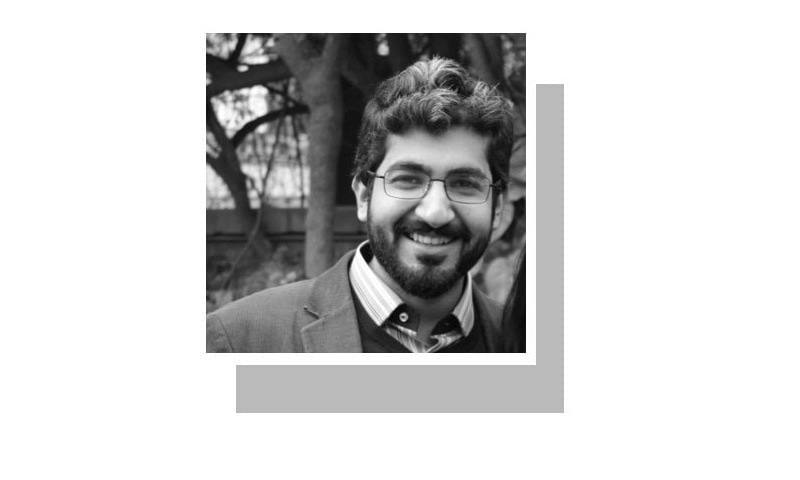SHOULD citizens trust the Pakistani state with relief efforts and donations in the aftermath of these devastating floods? This is a common question, and one that was asked after the 2005 earthquake and the 2010 floods as well.
The fact that this question is being asked shows a trust deficit between Pakistani citizens and public institutions — not just those tasked with relief work, but the ‘government’ more broadly. Among some segments, at least, donating to NGOs, welfare organisations, individual relief workers, and political parties seems to be preferable over donating to the government.
What is the basis of this distrust? The simple answer is any actual, tangible experience with most government departments is sufficient to leave a person deeply sceptical of public authorities’ commitment towards social welfare. This is particularly true for marginalised groups — such as households of the urban and rural poor, and religious, gender and ethnic minorities. Priced out of market-based solutions for basic services, such groups have no option but to turn to the state and face disappointment. Evidence from other contexts also suggests that the increased likelihood of these groups experiencing hardship during calamities and crises can further erode trust.
Read: Floods and photo ops
Another reason for distrust is ideology and politics. A common example of this in Pakistan’s case is opposing party politicians specifically warning citizens against an incumbent government, accusing it of incompetence, corruption, or misuse of public funds. For most of Pakistan’s history, the military establishment has pioneered an ‘anti-politics’ worldview towards elected officials, especially among urban middle-class groups. These accusations may or may not always be grounded in reality, but they carry an impact on citizen attitudes and levels of trust in their own government.
The Pakistani state’s past performance in managing calamities of various sorts is not abysmal, given existing capacity levels.
This pervasive lack of trust in the Pakistani state manifests itself in various sectors.
Recent work by Acemoglu, Robinson, Khwaja, and Cheema lays out, baseline trust in the formal judicial system is very low due to costs, perceptions of unfairness, and time-related inefficiencies. In the fiscal domain, tax compliance is low at least partly because people don’t see where their tax money ends up. In the domain of charitable giving, forthcoming work with my co-authors Max Gallien and Vanessa van den Boogard, shows that the vast majority of people are more willing to distribute their zakat themselves or through other local actors, rather than through state institutions partially on account of not knowing where that money ends up.
It’s hard to deny the mountain of evidence for the general lack of trust as well as the reasons for its existence. In this context, citizens are well within their right to donate to any civil society or political actor that they think can provide assistance to those impacted by a disaster. Getting money, relief goods and other resources to those who need it the most is the need of the hour.
But this approach is bound to run up against a few challenges in the subsequent few months. First is the issue of scale — the flooding is so pervasive, the loss of material resources so high, and the displacement of such a great magnitude that there is no one alternative organisation that can deal with it effectively.
Second, there is also an existing imbalance in terms of locations where non-state relief actors may be concentrated, compared to other impacted areas which may be less accessible or may not have as many local NGOs or relief personnel.
Read: Flood aftermath — tired of being cut off, residents forge their own path in parts of KP
Third, the task of reconstruction and rehabilitation of private and public infrastructure requires far greater resources, expertise, and coordination. It is unlikely that any civil society actor can carry it out.
This brings the conversation back to the state itself. As sociologist Peter Evans pointed out, “the state lies at the centre of solutions to the problem of order. We do not spend our valuable time standing in lines in front of the counters of bureaucrats because we are masochists. We stand there because we need what the state provides”.
More often than not, it does not provide us with what we need. But very occasionally it does.
The Pakistani state’s past performance in managing calamities of various sorts is not abysmal, given existing capacity levels. The Covid-related welfare response and vaccination drive under the previous government was reasonably effective. Development geographer, Ayesha Siddiqi’s work on the 2010 floods highlights how contrary to mainstream narratives, governmental welfare efforts (cash transfers in particular) reached a sizable cross-section of the impacted population, improved state-society levels of trust, and actually made citizens more likely to demand broad-based policy responses as opposed to localised, patronage-based solutions.
None of this is to suggest that governmental authorities will necessarily do a great job in the months ahead. In fact, it is entirely legitimate to suggest that much of the damage is partially because the government failed to do its job in the months and years leading up to the disaster — by not having adequate systems in place, by encouraging risk-inducing development, and by underfunding solutions that combat climate change.
The reality, however, is that the scale of the challenge is too great for civil society, and the institutions of the state are the only administrative apparatus that we have (for now). Until we have an alternative that can fund, coordinate, and manage efforts at a national scale, this is what citizens will have to rely on. In the following few months as relief efforts give way to reconstruction, the most suitable task for civil society volunteers and organisations working on the ground would be to hold the state accountable, to demand transparency in how money is spent, and to ensure broader ownership of the rehabilitation efforts.
The writer teaches politics and sociology at Lums.
Twitter: @umairjav
Published in Dawn, September 5th, 2022














































